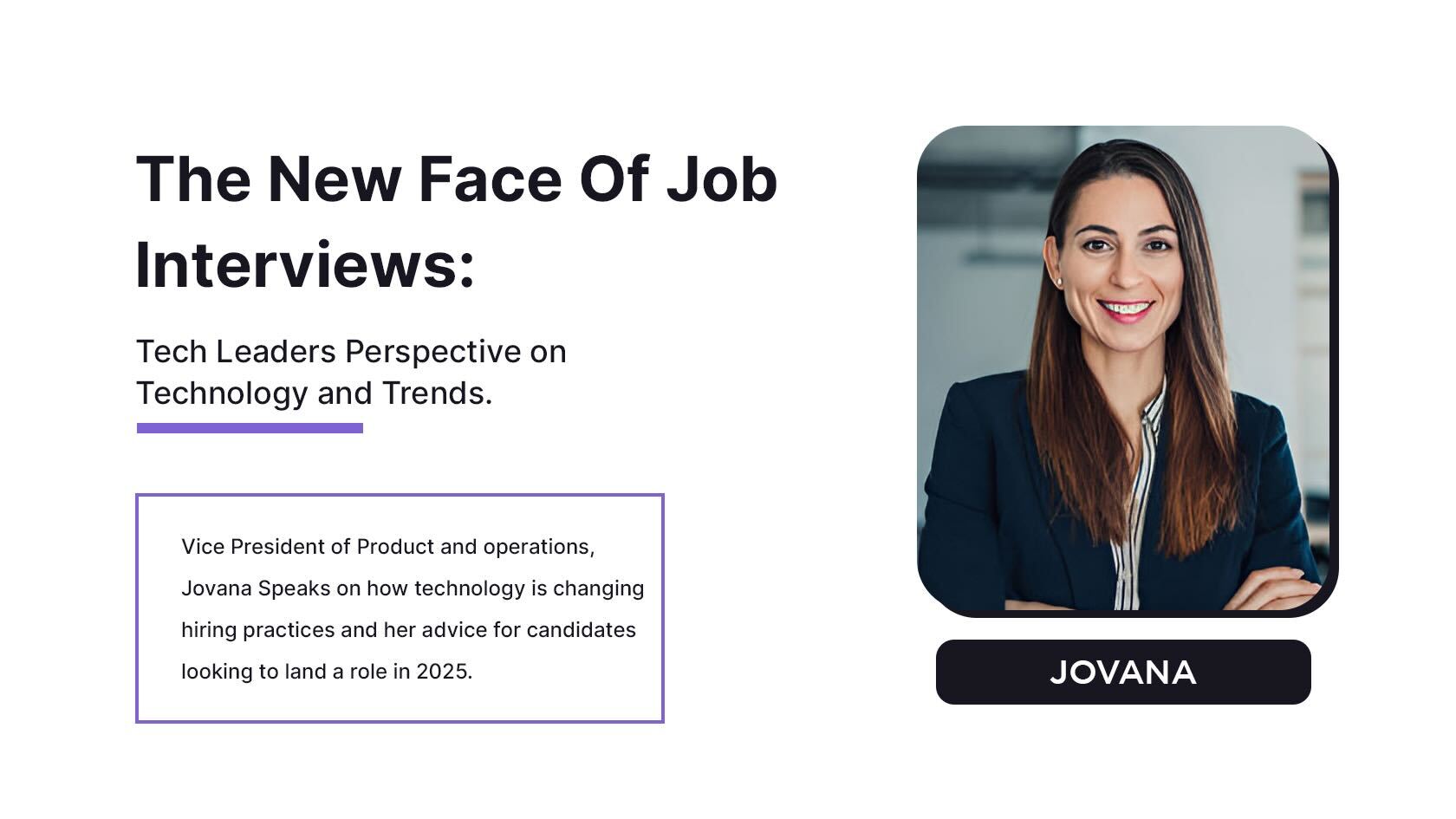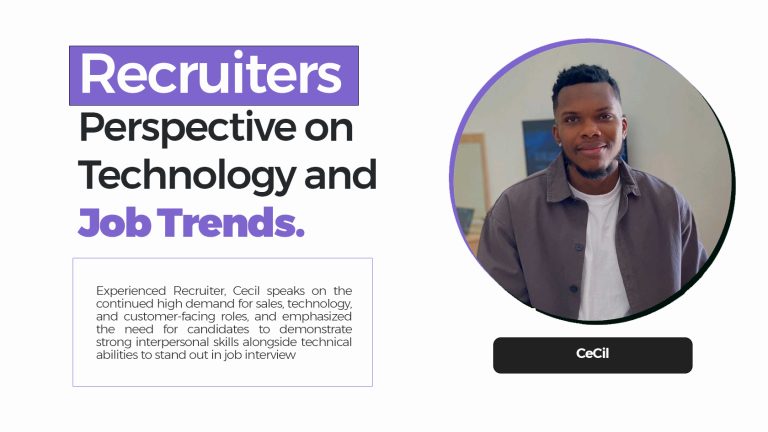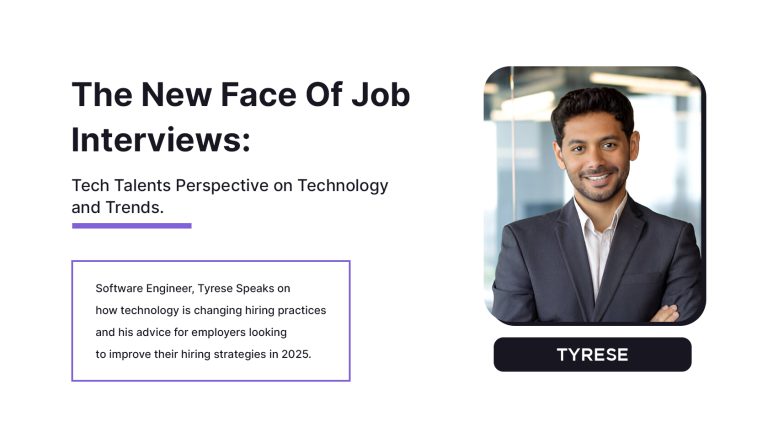As technology continues to transform the hiring landscape, what does the future hold for job interviews? We sat down with Jovana M., an HR specialist in her late 30s. She heads the people and culture department at a mid-sized tech company. We wanted her perspective on the challenges, opportunities, and skills needed for interviewing in 2025 and beyond.
Finding the Right Fit
Jovana emphasized that the core challenge in interviewing remains constant: finding the right person for the job. “When hiring in bulk or trying to fill multiple positions at once. It’s easy to get caught up in processes and lose focus on what matters – assessing fit” she explained.” “Tight timelines, inconsistent candidate experiences, interviewer biases – these factors can undermine even the most rigorous hiring practices.
So what’s the solution? For Jovana, it starts with a crystal clear understanding of the role. “Before I even post a job description, I work closely with the hiring manager. We define exactly what skills, traits, and values we need in this hire; and what will enable them to succeed and drive impact in our specific context. That early alignment is critical.”
AI: Upsides and Pitfalls
Jovana believes AI-powered tools will play an increasingly vital role. They will help companies zero in on the right candidates more efficiently. “When used thoughtfully, AI can help reduce human biases, engage candidates 24/7, and rapidly shortlist top talent.”
But she cautions against an overreliance on AI. “These tools are not a panacea. I’ve seen companies implement AI but fail to think critically about how it fits their unique needs and culture. You can’t just plug and play.”
Jovana advises recruiters to judiciously combine AI insights with their experience and intuition. “Use AI to enhance your hiring process, not replace your judgment. Critically assess if its recommendations truly align with the role and your organizational objectives.”
The Skills Companies Will Crave in 2025
As AI and automation remake entire industries, the skills employers prize are evolving rapidly. Jovana predicts the next traits will be in high demand:
- Critical thinking: “AI can process data and generate insights. But, we will always need sharp critical thinkers to interpret the results. These thinkers will also need to devise creative solutions.”
- AI proficiency: “Understanding how to properly use AI tools will become a vital skill. Blindly following AI is risky – discernment is key.”
- Communication: “As organizations become more distributed and data-driven, articulate communicators who can synthesize complex information will be indispensable.”
- Adaptability: “I can’t overstate the importance of agility. Technologies, business models, and even entire sectors are being disrupted. The candidates who thrive will be relentless learners.”
- Domain expertise: “Cutting-edge tools are no substitute for deep domain knowledge. True topic matter expertise will remain a significant differentiator.”
The Power of Potential and Cultural Fit
For Jovana, one of the most crucial yet underrated elements in hiring is evaluating a candidate’s potential. “Focusing solely on qualifications and experience is short-sighted. I’m more interested in whether they have the drive, creativity, and values to grow with us over the long term.”
Key to unlocking that potential? Cultural fit. Skills can be acquired. But, an employee whose approach and values clash with your culture is unlikely to succeed. This holds no matter how brilliant they are. Negative ripple effects across the team are inevitable.
To assess soft skills and cultural compatibility, Jovana recommends:
- Clearly define your cultural tenets and the specific behaviors that embody them
- Crafting scenario-based interview questions that evaluate a candidate’s instincts and judgment
- Involving multiple colleagues to gain a diversity of perspectives
- Letting the candidates experience the culture firsthand when possible in job interviews
Pitfalls and Best Practices for Interviewees
Jovana offered pointed advice for job seekers: “Job interviews are a two-way street. Use them to suss out not just whether you can do the job. Also, figure out if it’s the right environment for you to do your best work.”
Red flags to watch for as a candidate include:
- Interviewers who can’t clearly articulate expectations or success metrics for the role
- Lack of diversity among interviewers and decision-makers
- Dismissiveness toward your questions about culture and development opportunities
- Over-emphasis on short-term firefighting vs long-term vision.
Parting Wisdom for Hiring Managers
As our enlightening conversation drew close, Jovana reiterated her guiding philosophy. She said, “Approach each candidate with fresh eyes, an open mind, and respect for their time.”
“Interviewing can feel transactional, but we must remember there are human beings on the other side of the process. People with passions, anxieties, and often much to teach us. When we treat job interviews as an opportunity not just to assess but to learn and empathize, everybody wins.”
The future of interviewing is high-tech, but the beating heart of the process remains decidedly human. By marrying powerful tools with timeless emotional intelligence, the most innovative companies will build cultures and teams equipped to solve the defining challenges of our era.




